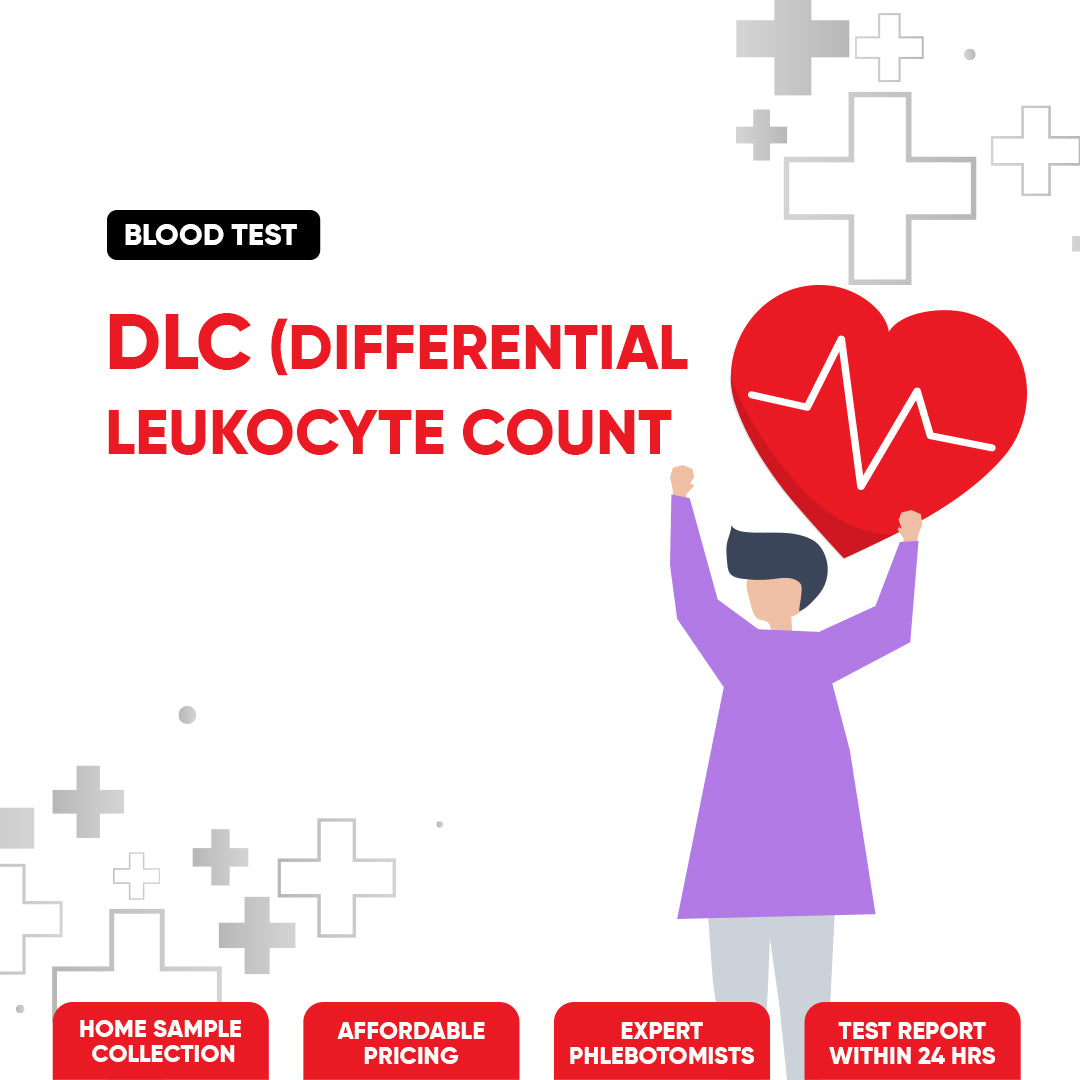DLC (Differential Leukocyte Count) Test
DLC (Differential Leukocyte Count) Test
Regular price
Rs.485
Regular price
Rs.600
Sale price
Rs.485
Couldn't load pickup availability
📅 Add your preferred date & time in cart notes before checkout.
✅ Home Sample Collection✅ Expert Phlebotomists
✅ Reports in 24 Hours
✅ All over Karachi
✅ Trusted by 450,000+ Customers
What is a Differential Leukocyte Count?
- Purpose: The DLC test measures the percentage of each type of white blood cell (leukocyte) in your blood.
- Function: It helps diagnose and monitor infections, inflammatory diseases, and hematologic disorders.
Types of White Blood Cells Measured in DLC
-
Neutrophils
- Function: Fight bacterial infections and respond to inflammation.
- Normal Range: 40% to 70% of total WBCs.
- Significance: High levels may indicate bacterial infections or inflammation; low levels may suggest a risk of infection or bone marrow problems.
-
Lymphocytes
- Function: Involved in the body’s immune response, fighting viral infections and producing antibodies.
- Normal Range: 20% to 40% of total WBCs.
- Significance: High levels may indicate viral infections, chronic inflammatory conditions, or certain leukemias; low levels may suggest immunodeficiency or severe infections.
-
Monocytes
- Function: Remove dead or damaged cells and fight certain infections.
- Normal Range: 2% to 8% of total WBCs.
- Significance: High levels may indicate chronic infections, inflammation, or blood disorders; low levels are less common but may occur in bone marrow disorders.
-
Eosinophils
- Function: Combat parasitic infections and play a role in allergic reactions.
- Normal Range: 1% to 4% of total WBCs.
- Significance: High levels may indicate allergies, asthma, or parasitic infections; low levels are generally not clinically significant.
-
Basophils
- Function: Involved in allergic responses and release histamine.
- Normal Range: 0.5% to 1% of total WBCs.
- Significance: High levels may indicate allergic reactions, chronic inflammation, or certain leukemias; low levels are generally not clinically significant.
Why is the DLC Test Done?
- Diagnosis: Helps diagnose infections, inflammatory diseases, allergic reactions, and hematologic disorders.
- Monitoring: Monitors the progression of diseases and the effectiveness of treatments, especially for infections, leukemias, and immune system disorders.
- Health Assessment: Provides a detailed picture of the immune system's status and overall health.
When Should You Get a DLC Test?
- Infections: If you have symptoms of infections such as fever, chills, or unexplained illness.
- Inflammatory Diseases: For symptoms of chronic inflammation, such as joint pain, swelling, or chronic fatigue.
- Immune System Disorders: If you have symptoms of immune system disorders or a history of autoimmune diseases.
- Routine Checkups: As part of a comprehensive health assessment or during a routine CBC test.
1. Choose Your Test
Browse our wide range of lab tests that fit your needs from trusted partner labs like Essalab and KLDC.
2. Book Appointment
Easily schedule a convenient date and time for free home sample collection.
3. Get Results
Receive your accurate lab reports within 24 hours. Access your results online.
View full details


